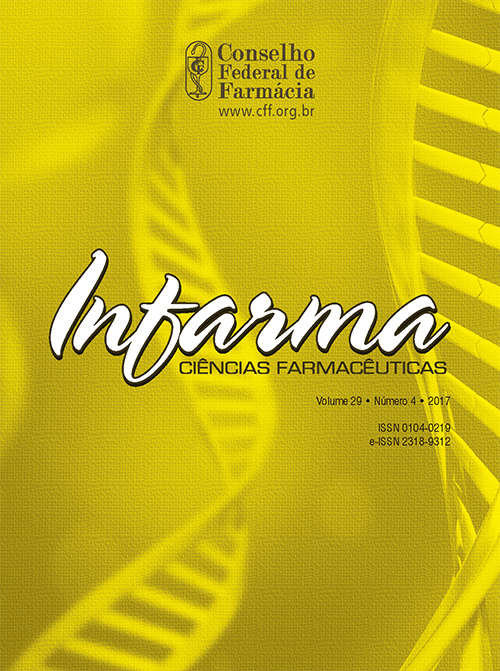Antimicrobial screening of methanolic extracts obtained from fruit plants selected from the flora of Santa Catarina, Brazil
DOI:
https://doi.org/10.14450/2318-9312.v29.e4.a2017.pp357-363Keywords:
antimicrobial action, medicinal plants, chemical compounds.Abstract
Due to the increasing difficulty in combating current antimicrobial resistant microorganisms, the antimicrobial potential of some plants has aroused researchers interest for being a natural alternative and for the consecrated possibilities. The present study aimed to evaluate the antimicrobial potential of wild fruit plants extracts by determining the minimum inhibitory concentration (MIC). The plants were selected for the indication of widespread use, and domestication in the region of “Vale do Itajaí, ” and their methanolic extracts were submitted to phytochemical analysis by thin layer chromatography using specific developers. The extract of the mature Marlierea tomentosa pulp presented excellent antimicrobial activity against S. aureus bacteria, and the extract of Plinia edulis seeds showed good activity. The extracts of Eugenia brasiliensis seeds, M. tomentosa branches and Myrcianthes pungens seeds were considered moderately active. It is possible to conclude that there is an antimicrobial potential in some studied extracts, but complementary tests are necessary with different bacterial, to ensure and complement the presented results, and also isolate and identify the respective active principles.
Downloads
Published
How to Cite
Issue
Section
License
Authors who publish in this journal agree to the following terms:
- Authors retain the copyright and grant the journal the right of first publication, with the work simultaneously licensed under the Licença Creative Commons Attribution which allows the sharing of work with acknowledgment of authorship and initial publication in this journal.
- Authors are authorized to take additional contracts separately, for non-exclusive distribution of the version of the work published in this journal (e.g. publish in institutional repository or as a book chapter), with acknowledgment of authorship and initial publication in this journal.
- Authors are allowed and encouraged to publish and distribute their work online (e.g. in institutional repositories or on their personal page) at any point before or during the editorial process, as this can generate productive changes as well as increase the impact and Citation of published work (See O Efeito do Acesso Livre ).


